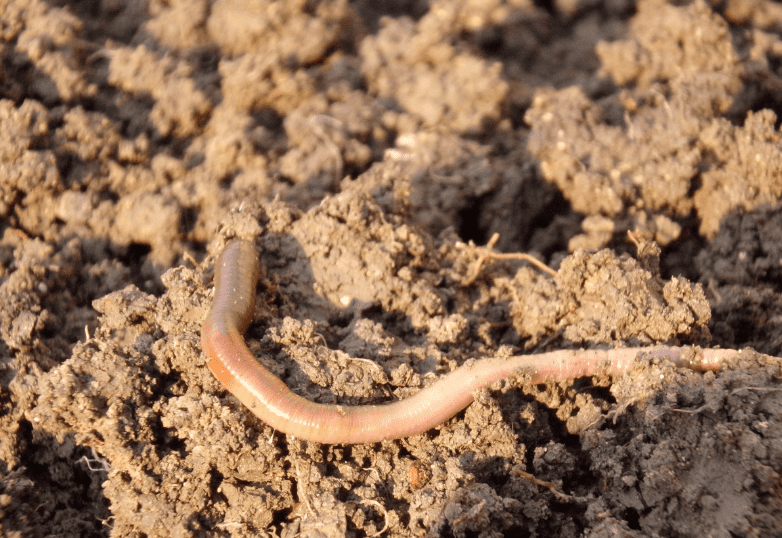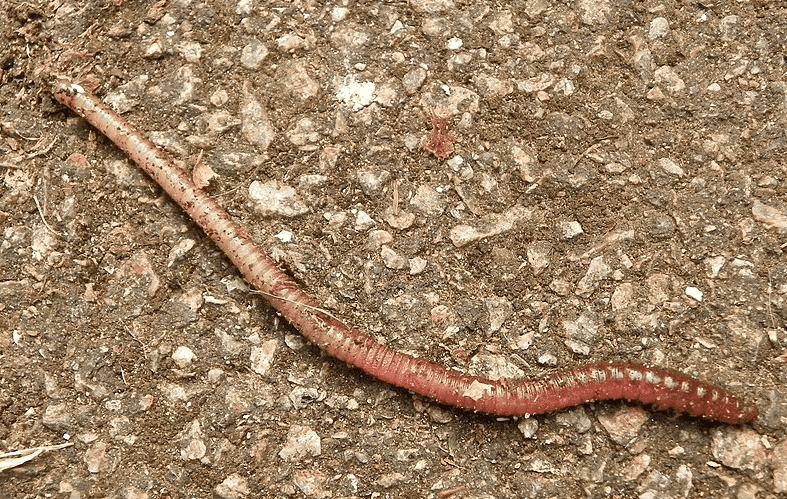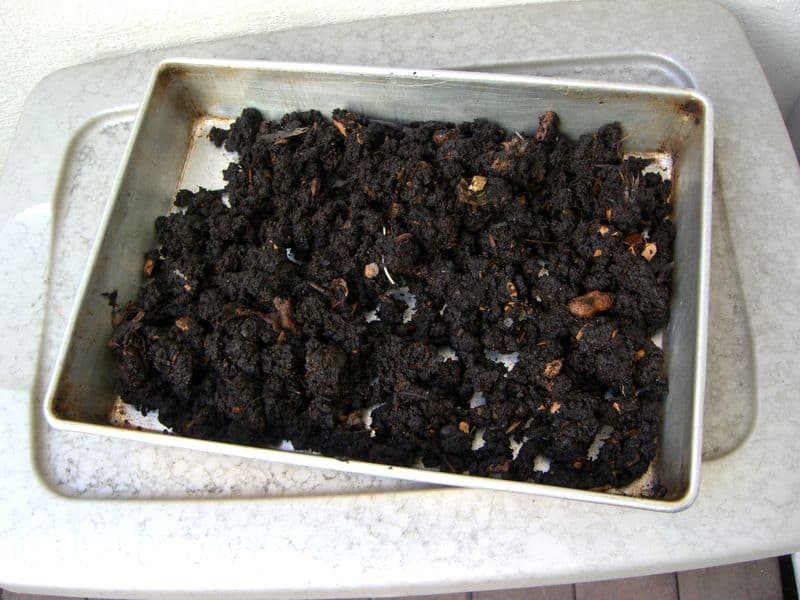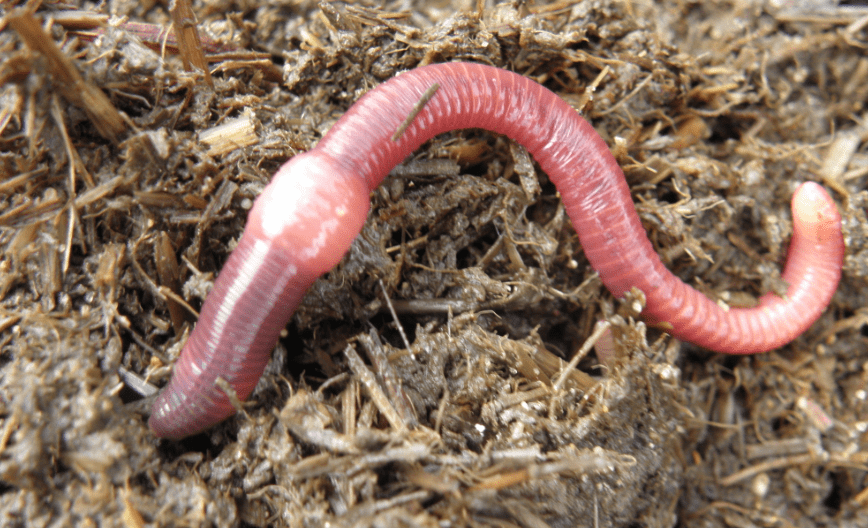Believe it or not, earthworm castings are the most nutrient-rich natural fertilizer known to man! These tiny, oblong-sphere-shaped pellets are the byproduct of earthworms and contain a plethora of minerals including nitrates, magnesium, phosphorus, potassium, and more. They’re odorless, and unless someone told you they were worm poop, you probably would just think it’s weird-looking dirt.
Why Earthworms?

In the vermiculture and vermicomposting world, earthworms, typically the red wiggler (Eisenia fetida) are the center of attention – and for a good reason too! In terms of gardening and crop enrichment, earthworms solve all sorts of issues in a natural and chemical-free way. Apart from the benefits of the castings, earthworms and the compost they produce:
Control Plant Diseases and Pests
In a 2011 University Study done by Y. Simsek-Ersahin, Department of Biology at Cankiri Karatekin University in Turkey, he found there is an overwhelming body of evidence that indicates microbial communities, aided with compost amendments are responsible for disease suppression.
Furthermore, earthworms are known to promote microbial activity and diversity in soil, which further enhanced the suppression ability of vermicomposts on plant pathogens.
In another test, scientists sprayed tomato seedlings with a vermicompost tea, and then released two common types of spider mites into the area containing the seedlings. Compared to the control they sprayed with regular compost tea, the vermicompost tea had significantly prevented damages caused by both pests, whereas the control had no effect.
Improve Soil Texture, Aerate it, and Encourage Water Retention
Some earthworms burrow vertically, and some horizontally. For those that burrow vertically, this allows water to infiltrate the soil and reach the roots of the plant. In addition to water, plant roots need oxygen and a way to get it.
Soil porosity is essential to helping roots receive the oxygen they need and allowing for carbon dioxide to leave the soil. Earthworms help to create permanent burrows as they move through the soil and mix the ground up by digesting and excreting it.
The castings themselves can hold 2-3 times their weight in water. This retention helps to ensure your plants stay hydrated, even in times of drought.
Earthworms Remove Heavy Metals and Other Harmful Contaminants

Through a process called ‘bioremediation,’ earthworms have been shown to extract toxic heavy metals like lead, copper, cadmium, and more. Essentially, an earthworm’s digestive system has the ability to break down the chemical structure of these metals and leave behind only nutrient-rich worm casts.
In another study, earthworms were shown to break down crude oil that had contaminated soil, in half the time as a control.
These three benefits of merely having earthworms around your plants will help them thrive in their environment and increase flowering or fruiting. The best part is, we haven’t even gotten into the benefits of the castings they leave behind!
Benefits of Using Worm Castings

Time-Delayed Release of Nutrients
When the worms leave their castings behind, the nutrients are bound in these castings. The castings are encased in a mucus membrane that takes time to dissolve. Think of it like a bubble that slowly gets thinner over time. Because of this membrane, the nutrients are released slower and won’t burn the plant as some other fertilizers will.
Lots of Beneficial Microorganisms
Just like your digestive system, an earthworm’s digestive system contains a wide variety of microorganisms, enzymes, and hormones. All of these substances aid in the breakdown of the organic matter as it passes through the worm’s gut. As the final product leaves the worm’s body, so do some of these microorganisms that get passed into the soil.
Non-Toxic, Organic, 100% Natural, Odor Free
Does it get any more natural than using the worms given by mother nature? No, it doesn’t and the best part is, there isn’t an odor like regular manure.
Humic Acid
It sounds bad, almost like it could harm your plants, but that’s the furthest thing from the truth. Humic acid is a group of molecules that aid plant roots in the absorption of water and nutrients. It can be found in worm castings which helps to stimulate plant growth and nutrient uptake.
pH Neutral
If your soil isn’t exactly where it needs to be, worm castings can aid in stabilizing its pH level.
How to Apply Worm Castings
Dry Spread
Luckily, there isn’t really a wrong way to apply worm castings to your plants. The easiest way to spread the castings on the desired area is by hand or with a dry spreader. Some prefer to water the area to help the castings soak into the soil after applying a layer.
Soil Mixture
If it’s the start of the season or you’re transferring your plant to a new area, a soil mixture is a way to go. It allows the castings to be spread evenly throughout the soil where it will reach all the roots. Use a ratio of 1:3, castings to soil, when using this method.
You can adjust the ratio based on how your plants perform. For some, this takes some time to dial in, and you may want to use a ratio of 1:2 for one pot/area, 1:3 for the next, and 1:4 for the remaining to see how the plants grow.
Worm Castings Tea
Just like compost or vermicompost tea, you can make worm castings tea; however, the process is a little different. The easiest way to make worm castings tea is to buy a brew kit. These typically come in a 5-gallon package that will make enough for you to cover an acre of plant life. Otherwise, some DIY methods are a little bit cheaper.
Types of Earthworm Castings

You can use just about any type of worm you want for your garden, and they’re not going to hurt the soil. However, most gardeners and commercial manufacturers use one or a combination of Red Wigglers (Eisenia Fetida), Redworms (Lumbricus Rubellus), or African Night Crawlers (Eudrilus Eugeniae).
Unless you have a keen eye, it’s difficult to tell the difference between these and other worms. The most significant difference is how they live. For the home consumer, Red Wigglers or Redworms are your best bet. They’ll generally eat anything you put in the bin.
Nightcrawlers prefer to burrow deeper into the soil and munch on the organic matter below the surface. However, keep in mind you’ll want to keep their diet relatively clean and free of pesticide-ridden scraps. Is there a difference in worm castings between worm types? It’s up for debate. As a general rule of thumb, using any type of worm castings is probably better than using none at all.
These worms can be picked up at your local garden center, but you might be hard-pressed to find them at your local home improvement store. Your best bet is to order them online where you’ll get the best quality for the best price.
- Ready to start spreading worm castings on your garden or lawn? Check out the selection on Amazon here.
- Ready to get into vermicomposting? Check out the Vermicomposting Guide here!
Sources:
- The Use of Vermicompost Products to Control Diseases and Pests – Page 203
- Penn State: Why are Earthworms Important
- Bioremediation of toxic metals using worms: Earthworms soak up heavy metal.
- Humic Acids Isolated from Earthworm Compost Enhance Root Elongation, Lateral Root Emergence, and Plasma Membrane



